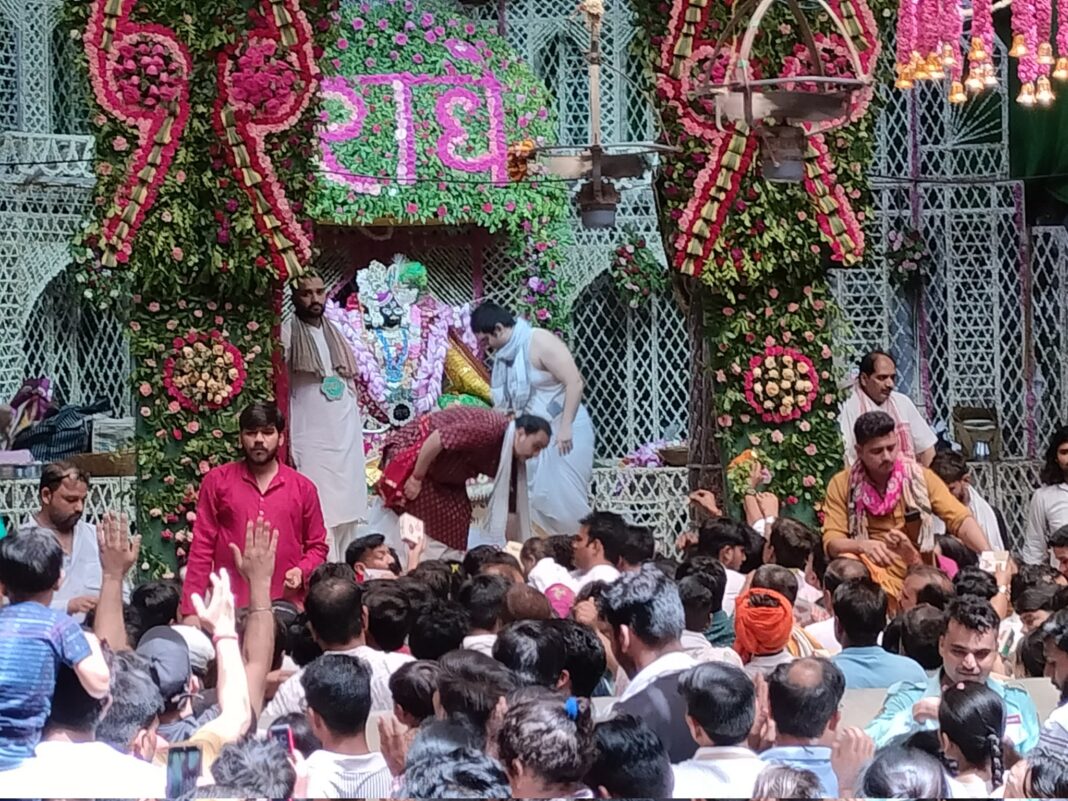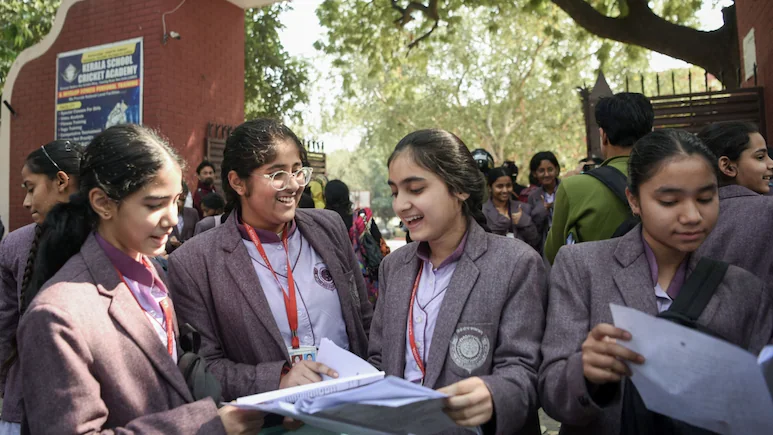By The Sampadak Express
Priests at the renowned Banke Bihari Temple in Vrindavan have firmly rejected a demand to discontinue using attires made by Muslim artisans for the deity, asserting that religious discrimination has no place in the temple’s traditions. This request came from Dinesh Sharma, leader of the right-wing group Shri Krishna Janmabhoomi Mukti Sangharsh Nyas, who urged the temple management to ensure that Lord Krishna’s attire is crafted only by artisans who adhere to “religious purity.”
Sharma’s group argued that the garments of Lord Krishna should not be made by those who “consume meat and do not respect Hindu traditions or cow protection.” In a letter to the temple, the group threatened to stage protests if their demands were ignored.
However, the temple priests have deemed the demand “impractical” and emphasized that the temple has a longstanding tradition of inclusivity. One priest explained that nearly 80 percent of the skilled artisans responsible for crafting the deity’s attire, crowns, and intricate ‘zardozi’ work are Muslims. He pointed out that artisans from other communities lack the same level of expertise in creating these intricate garments. The priest also mentioned that Muslim artisans are responsible for crafting other temple structures, such as iron railings and grills, and questioned how one could inspect the personal purity of every artisan involved in the process.
Priest Gyanendra Kishore Goswami rejected the demand, emphasizing that artisans should not be judged based on their religion. He referenced Hindu scriptures that illustrate how virtuous and sinful individuals can be born into the same family, further arguing that such distinctions should not be applied to the temple’s artisans. He also highlighted the logistical challenge of ornamenting the deity with a dozen outfits daily and thousands over the course of the year.“
We do not discriminate against any community. The devotees who offer attires for the deity ensure purity themselves before getting them made,” Goswami added, stressing that the temple’s practices have always been inclusive.
Historically, Muslim artisans have been integral to the temple’s traditions. Goswami noted that in Vrindavan, Muslim artisans have been responsible for creating the intricate crowns and garments for Lord Krishna. Similarly, in Kashi, Rudraksha garlands, sacred to Lord Shiva, are crafted by Muslim families. Goswami also cited the example of Mughal Emperor Akbar, who once gifted a perfume to Swami Haridas, a revered saint associated with the temple, for the worship of Lord Krishna. Even today, Muslim musicians play the ‘nafiri,’ a traditional wind instrument, during special temple occasions.
Temple administrator Umesh Saraswat distanced himself from the demand, clarifying that the authority to decide on the deity’s attire and rituals lies solely with the temple’s priestly lineage. “Our role is limited to managing the temple premises and logistical arrangements,” Saraswat said.
The temple continues to uphold its tradition of inclusion, rejecting efforts to impose religious discrimination in its rituals.






